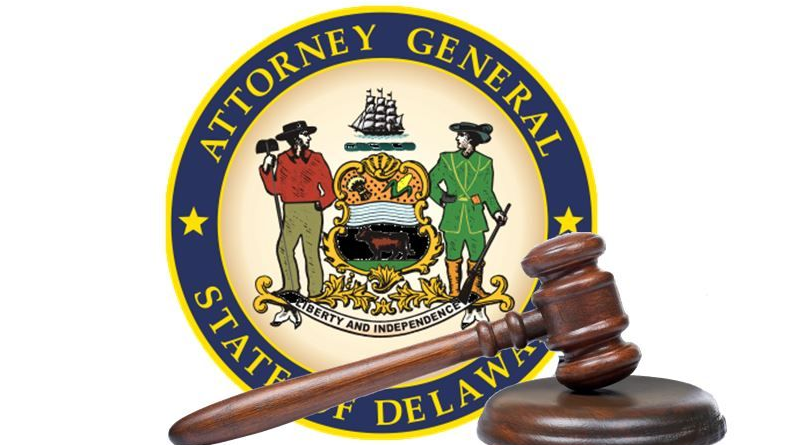House Bill 4, sponsored by Rep. Longhurst and Senate Majority Leader Nicole Poore would remove all Title 16 drug offenses from being designated as “violent felonies,” so they would no longer be subject to the enhanced charging and sentencing provisions as violent crimes.
Expand the ability to modify sentences for conditional release based on the rehabilitation of the offender, serious medical illness or infirmity, or prison overcrowding.
Establish the Sentencing Accountability and Guidelines Commission, which would replace the Delaware Sentencing Accountability Commission (SENTAC) as it is currently constituted.
There are 11 other criminal justice reform bills addressing adult offenders that were announced Thursday:
- House Bill 5, sponsored by Rep. Longhurst and Sen. Poore, would reform concurrent and consecutive sentencing by providing sentencing judges with the discretion to sentence prison time concurrently when appropriate. It would mandate consecutive sentences when there are multiple victims for the most serious crimes and require consecutive sentences for assault in a detention facility.
- House Bill 6, sponsored by Ed Osienski and Sen. Jack Walsh, would modify the impact of criminal history on an applicant’s eligibility for licensure by the Board of Plumbing, Heating, Ventilation, Air Conditioning and Refrigeration Examiners.
- House Bill 7, sponsored by Melissa Minor-Brown and Sen. Walsh, would modify the impact of criminal history on an applicant’s eligibility for licensure by the Board of Massage and Bodywork.
- Senate Bill 43, sponsored by Sen. Walsh and Rep. Osienski, would modify the impact of criminal history on an applicant’s eligibility for licensure by the Board of Electrical Examiners.
- House Bill 8, sponsored by Sean Matthews and Sen. Elizabeth Lockman, would establish the Ex-Offender Employment Opportunity Tax Credit that offers a tax credit to employers for hiring qualified ex-offenders in an amount equal to 10% of that individual’s wages, with a maximum credit of $1,500.
- House Bill 9, sponsored by House Majority Whip Larry Mitchell and Bruce Ennis, would mandate two hours of wellness and resiliency training for police officers each year to mitigate the damaging effects of the trauma that our state’s law enforcement officers face as a result of their jobs.
- Senate Bill 37, sponsored by Darius Brown and Rep. Sean Lynn, would expand the availability of expungement for adult criminal records of arrest and conviction.
- Senate Bill 47, sponsored by Sen. Lockman and Rep. Lynn, would simplify Delaware’s drug code with a goal of providing more fairness in its application. It would remove geographic-based enhancements that disproportionately impact those living in urban areas as opposed to suburban and rural areas. The bill reduces the number of weight tiers from five to three with adjustments to accompanying sentences while retaining higher felony levels for weights that indicate drug dealing.
- Senate Bill 39, sponsored by Sen. Brown and Krista Griffith, would prohibit a court from suspending a driver’s license for nonpayment of a fine, fee, cost, assessment, or restitution. It also would prohibit a court from imposing an additional fee on a defendant for payments that are made at designated periodic intervals or late, or when probation is ordered to supervise a defendant’s payment.
- House Bill 77, sponsored by Stephanie T. Bolden, would simplify the burglary code to eliminate duplication by combining the burglary and home invasion sections and to align minimum mandatory sentences. The bill would make it the crime of burglarizing an occupied home during the day as serious as if done at night. It also would remove provisions for minimum mandatory time for prior convictions to recognize that enhanced penalties based on a person’s criminal history takes place at sentencing.
- House Bill 78, sponsored by Rep. Bolden, would simplify the robbery code to eliminate duplication. It combines the robbery and carjacking sections while preserving enhancements recognizing the seriousness of carjacking.
Additionally, lawmakers and officials unveiled seven bills that would address juvenile justice reform:
- House Bill 10, sponsored by Nnamdi Chukwuocha and Sen. Lockman, would prohibit the prosecution of any child under the age of 12 and bar transferring a juvenile prosecution to the Superior Court unless the child is aged 16 or older, with the exception of first and second degree murder and rape.
- House Bill 75, sponsored by Rep. Bolden and Sen. Lockman, would mandate that any child under 18 years old who is adjudicated in Superior Court will serve the initial portion of their incarceration until age 18 in the custody of the Department of Services for Children, Youth and their Families.
- Senate Bill 41, sponsored by Sen. Brown and Gerald Brady, would establish that the age of offense, not the age of arrest, determines jurisdiction for a young person facing charges.
- House Bill 76, sponsored by Debra Heffernan and Sen. Bryan Townsend, would require the Department of Services for Children, Youth and Their Families to have exclusive jurisdiction over all aspects of a child’s care, custody and control when a child is convicted of a Superior Court offense.
- Senate Bill 44, sponsored by Laura Sturgeon and Rep. Minor-Brown, would make clear that possession or consumption of alcohol by an individual under 21 years of age is a civil offense. It also would prohibit including information concerning a civil violation of the underage possession or consumption law on an individual’s certified criminal record.
- Senate Bill 45, sponsored by Trey Paradee and Rep. Franklin Cooke, would make the possession, use, or consumption of a personal use quantity of marijuana a civil violation for juveniles.
- A measure to be sponsored by Rep. Lynn would raise the age in which a juvenile’s information, such as their name and mug shot, may be released by the state. It also would address issues related to the release of such information on state-maintained social media pages and web sites.

